Old yet modern, friendly yet rude, the Netherlands and its people are industrious, intelligent, and beautiful. Among the Dutch, there is a culture of ‘just be normal’, which means not standing out too much and doing as the other dutch do. That sounds like a horror story to my American sensibilities but this way of thinking empowers the country to invent, innovate, and reflect on its work, its history, and its own culture.
The Netherlands is the type of country where you can see yourself rooting down the next 50 years of your life, or fleeing after a week or two.
When you arrive in the land of wooden shoes and windmills, ditch the rental car you reserved and buy yourself a pair of riding gloves because the Dutch are big on biking. Grocery shopping, doctor’s visits, going to and from school and work can all happen while you’re on a bike. People also bike during winter when there is snow on the ground. Even drunk biking will occur from time to time! The nation has open drinking laws, and you can start imbibing when you hit 18 years old.
For citizens of the United States or the UK, the Netherlands is one of the best places to work as a digital nomad in terms of reliability in transportation, internet, healthcare, and English speakers. You may feel a little too at home, but the customs, language, and traditions of the Dutch are wholly unique, and the country is a well-preserved lock that will take time and patience to unlock.
It is apparent that the Netherlands and Dutch a long history of opening their arms out to foreigners and immigrants. There is no other country as welcoming or as friendly to outsiders than the Dutch. In fact, 12% of all people residing in the Netherlands currently are immigrants. Every year, about 11,000 citizens get married to immigrants as well. You may find small remnants of bigotry as you leave the major cities and head to the towns and villages, but hopefully, these are far and few in-between. There is little to worry about if you are a person with more pigment in their skin than the average Dutchman. You won’t be stared at rudely, nor will your hair be touched or pulled.
Amsterdam is the biggest city in the country, and, as you read this, your mind’s eye is generating images of marijuana, prostitutes, mushrooms, and blonde people. But before you dedicate yourself to degeneracy in Amsterdam, you should know that the locals in the city don’t smoke weed or partake in prostitution. That is far more of a tourist activity. It’s a city filled with intelligent youth, wild nightlife, and ambitious professionals looking to make their mark on the world.
Below are a few key points that need to be considered while researching work and life as a digital nomad in The Netherlands.
The Netherlands for digital nomads at a glance
Pros
- Reliable internet connections and speed.
- English is spoken in larger cities.
- The Dutch are an open and welcoming people.
- Stable and efficient public transportation
- The latest gear and technology is available.
- The country and people are dedicated to health.
- There’s coffee everywhere.
Cons
- You will have to work hard to leave your foreign bubble.
- The language is difficult to learn.
- It can be expensive.
- The Dutch are known to be blunt.
The cost of living in the Netherlands

Unfortunately, the cost of living in The Netherlands will make some people balk, especially if you’ve never lived in a large city before. If you’re coming from Los Angeles, New York, or London, then the cost of living is about as equal as living in Amsterdam, but Rotterdam prices are low, and they have a strong party scene. Perhaps The Netherlands will be a little cheaper since you won’t have to drive everywhere.
Step outside of the major cities and prices will immediately drop. There won’t be as much entertainment or variety in cuisine, but a quick trip into a city by train can fix that if you’re in the mood.
However, there are two elements to keep in mind before you place the Netherlands on your no-go list. First, the more you insist on the same amenities and items that you had in your home country, the more expensive it will be. Second, the more you want privacy, the more expensive it will be. If you wish for a lifestyle that is similar or a replica of the country you left, then you’d best be willing to pay out of pocket.
Just like most other major western countries, eating out is more expensive than making meals at home. If you’re accustomed to dining out often, you still can, as there are many restaurants, food stalls, and food delivery across the country, but the costs will add up. You can easily save money if you visit the supermarket and take advantage of any sales.
Here’s a quick rundown from Numbeo on the cost of certain everyday food items most people cannot go without.
- Milk is $3.90
- Bread is $1.22
- A dozen eggs are $2.59
- A pound of chicken is $4.27
- A bottle of mid-range wine is $6.74
- A local beer is $1.24
- A meal at a cheap restaurant is $15
Weather in The Netherlands

Since the Netherlands is a small country, there’s not much difference between regional areas and overall climate. Surrounded by water, the Netherlands doesn’t experience high heat or frozen winters. The summers are quite cool and fresh, which is quite dividing for those tourists from hot destinations. However, with the rise of global warming, the summertime sun is beginning to rise in strength and heat.
Some seasons have weather that is unpredictable and unreliable. There will be days where you agonize over whether to wear tank tops or rain boots.
Rainfall happens most often from April to September, but light showers pop-up whenever they fancy. The wintertime does bring light snowfall and cold winds, but the amount of snow in nothing like their Finnish and Danish neighbors to the north.
As with the many other low-lying countries, The Netherlands can have rain, heat, fog, sleet, and strong winds all in the course of a single day. So laying your clothes is essential and always check the weather on the TV and outside the window before leaving.
As we stated above, the summers are cool and light compared to other major European cities, which are hit by scorching heat every summer.
Finding places to stay in The Netherlands
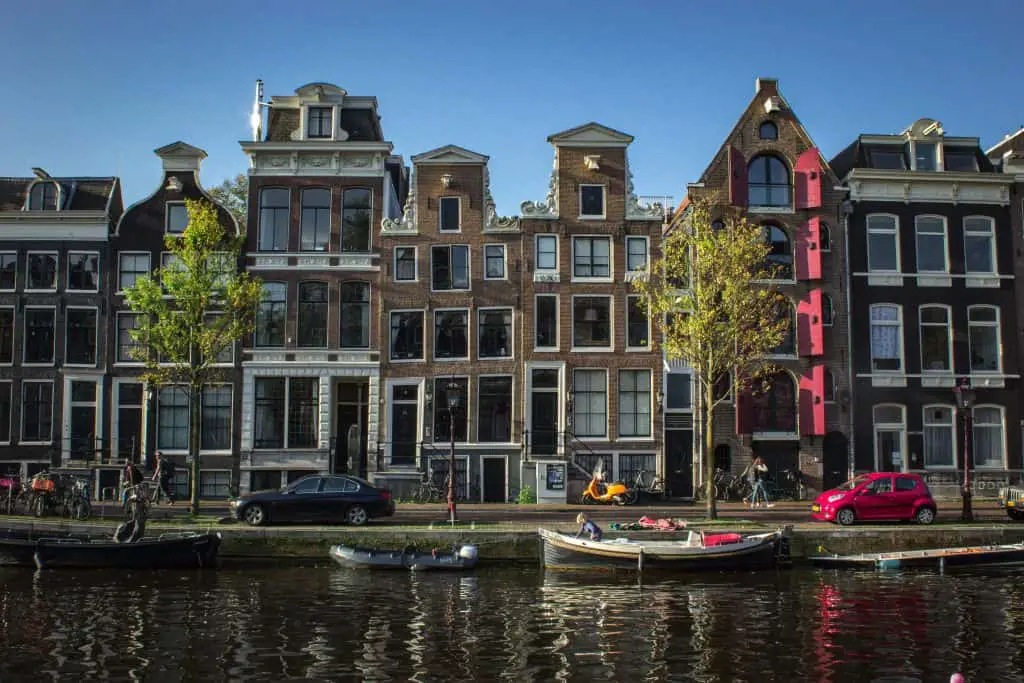
Like most other important cities in the world, the cities inside the Netherlands are also suffering from a housing shortage. Luckily price did fall a bit by April 2020, so let’s hope it keeps going down.
Apartments
If you’re in the position to rent an apartment, first you’ll need to place a deposit. The average amount you should expect to rent an apartment, flat, or house in the Netherlands is 2 months rent as a deposit and the first month’s rent. So if you are renting a $1,500 Apartments, you must be ready to fork over $4,500 before you move in.
The average price of a one-bedroom apartment in Amsterdam, Rotterdam, and The Hague is around $1,700. However, living outside of major metropolitan areas will be cheaper. It is entirely possible to rent an apartment or flat outside of a major city and commute by train, but make sure to live near train and bus stations. Expats and digital nomads can simplify their housing search by renting a room instead of paying for their own space.
There are also a few expat-friendly apartment complexes in major cities like Rotterdam but the spaces are usually constantly booked because of how great the apartment size and rent is. To acquire one of these expat-friendly spots, you’ll need to show steady, income, ability to pay rent, and a credit history,
Room rentals
Renting a room with a Dutch person is far more interesting as you could learn about the Netherlands first hand if they teach you. Now, you won’t have a lot of privacy, but your rent will be reduced by half or one third. Sites that streamline the search process for a room for rent are Kamernet and Rooming.
Hostels/hotels
Don’t even think of residing in hostels and hotels while you settle down in windmill country. It will become old quickly, and you will beg for a ticket home.
Visas and documentation in The Netherlands

Depending on the number of days you’ll be staying in the country, or if you work with Dutch businesses or companies, the type of paperwork you must do can be from non-existent or several packets long.
There are three ways to live in The Netherlands if you are not an EU National.
First, Americans who stay in The Netherlands for less than 90 days don’t require any Visa or documentation whatsoever beyond their passport. So if you’re traveling from country to country through Europe without plans to put down roots for at least a year, you’ll be just fine.
Second, if you want to stay in the country for a year or more while working independently as a freelancer, you’ll need to head to the local government office and apply for a self-employment visa.
The third and final way to stay in the Netherlands is to become an employee for a business or company. If you do this, you will qualify for the work authorization visa. You must stay in the country for at least one year, but you’ll be able to reside in the Netherlands as long as you continue to renew your visa and maintain a job in your field. The work authorization visa contains both your work and residential visa.
The top destinations for digital nomads in The Netherlands
Unless you accidentally pick the tiniest village in the Netherlands, the vast majority of the country is up-to-date, efficient, and has lighting fast internet speeds. It is almost as if the Netherlands was built specifically for digital nomads Wherever you decided to reside, you can be both successful and content. However, if you’re looking to live in a city that has more opportunities, entertainment, culinary options, and contains a larger population of both the Dutch and other expats, then here are the top 5 destinations for digital nomads in the Netherlands.
Amsterdam
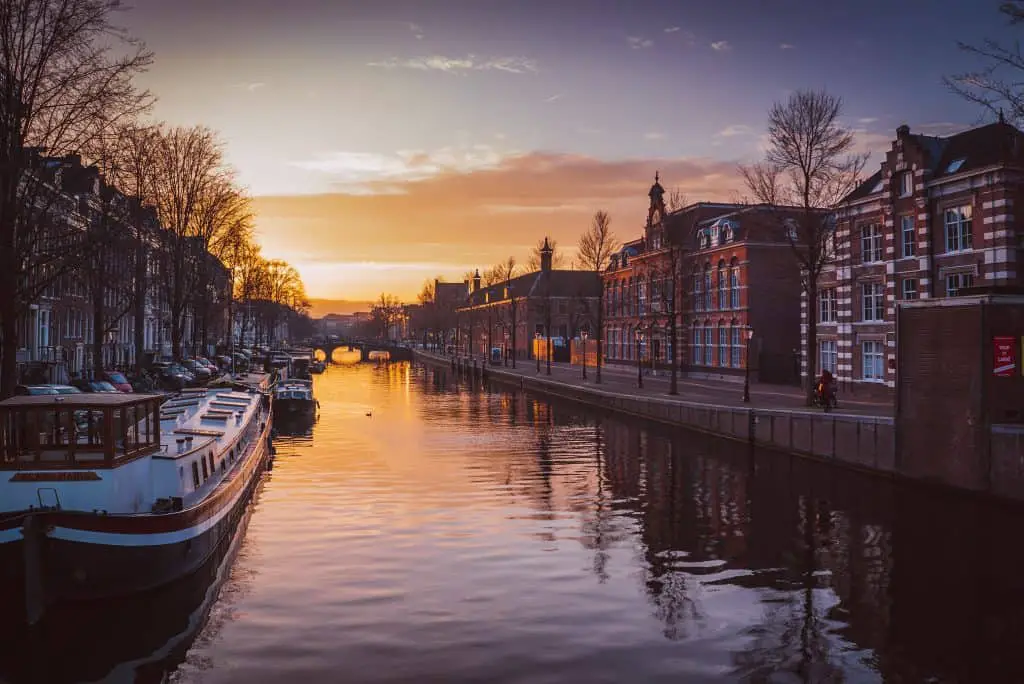
The largest city and the capital of the Netherlands, it’s brimming with beautiful architecture, ancient history, and career-driven young people. It was constructed on reclaimed land and the city planners knew that they had to display the soul of The Netherlands in this new city. When you live in this bright and beautiful Amsterdam, you can visit the Van Gogh Museum, pay a somber visit to the Anne Frank House, or bask in the sun at Vondelpark.
Rotterdam

As the most diverse city in all of the Netherlands, you’re sure to find great officemates and make international friends after you’re done settling into the city. On the coast of Rotterdam, watch as shipping containers move in and out of Europort, the Eu’s main shipping hub. If you are into modern architecture, then you’ll enjoy the sights of this city, as it lives in juxtaposition to the capital city’s old buildings and history with its towering skyscrapers and modern museums. In this city, you’ll be able to engage in many of the oceanside or maritime activities that dot the coast.
The Hague
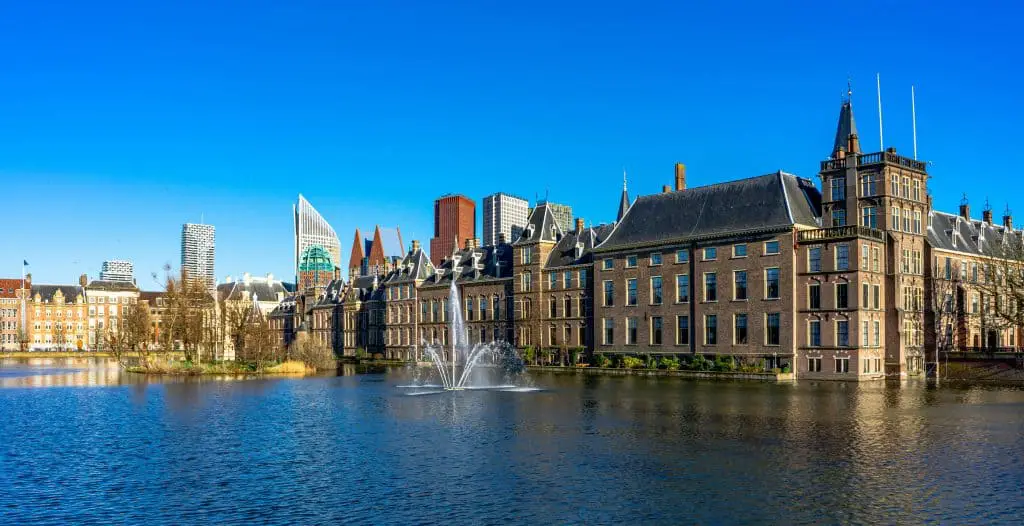
While the Hague is far more similar to a small town than a megalopolis, it has just as much entertainment and working professionals within it, just over a land are that is also home to the International Court of Justice. Multiple expat sites rank the Hague as one of the friendliest cities, if not the most friendly, city in the Netherlands, so this ideal area to make connections and find new business partners. And you can do this while taking in the centuries old gothic architecture and large interconnecting canals that allow boats of all kinds to pass through.
Haarlem
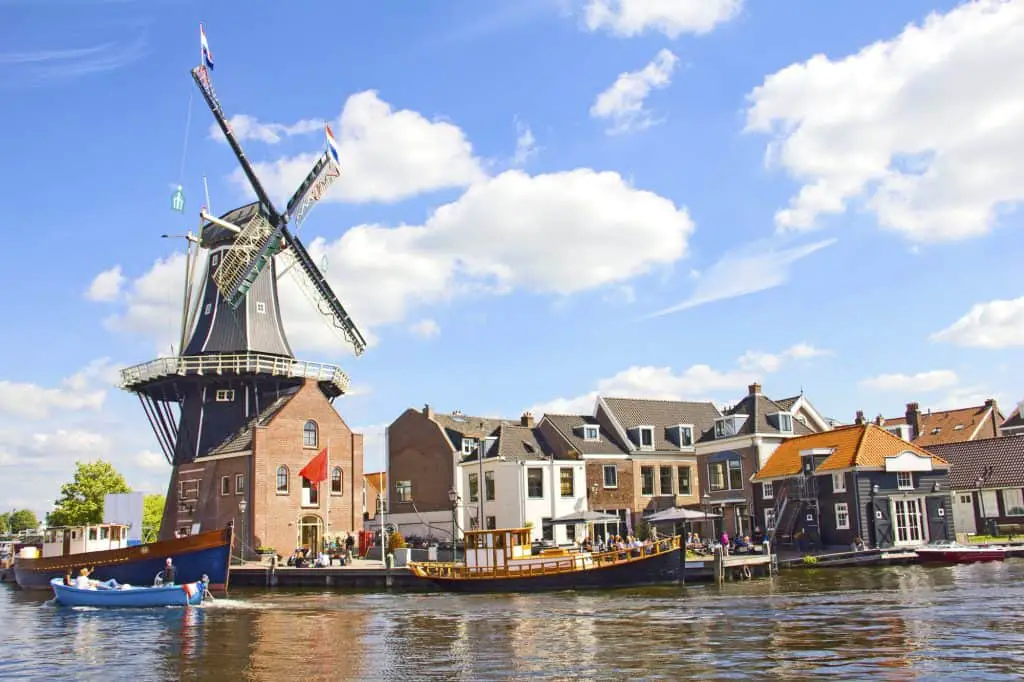
On your first walk around the city of Haarlem, you’ll swear you traveled back in time to the 15th century as you skip down solid cobblestone streets. In front of your eyes, the architecture of the city is a feast for the eyes, and you’ll actually be able to enjoy what you see since very few tourists come here. Now it stands as a down to earth city that’s a great alternative to Amsterdam. The prices are lower, the scenery is rich, and you’ll be treated to a beautiful springtime as tulips bloom in the spring. After a long day working, go to the main square in the middle of the city and catch up with old friends or make some new ones.
Utrecht
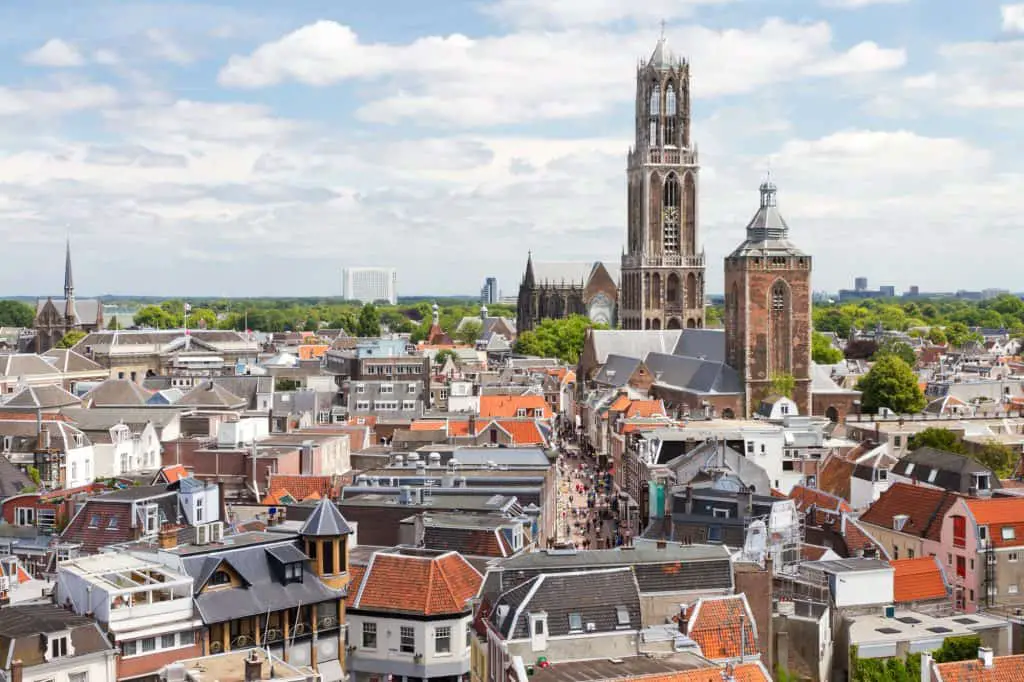
Living in a city can be exhausting, so if you prefer a calm and gentle way of living, then Utrecht might be the place for you. Packed with dozens of small eateries and coffee shops, the smell of specialty food fills the air every day around noontime. Public transport is as good as anywhere in The Netherlands, and you can find cute specialty shops and items as you travel around the city.
Feel free to add your tips, ideas, destinations or tricks in the comments below. We’re always looking for more info to add to this ultimate guide to the Netherlands for digital nomads!


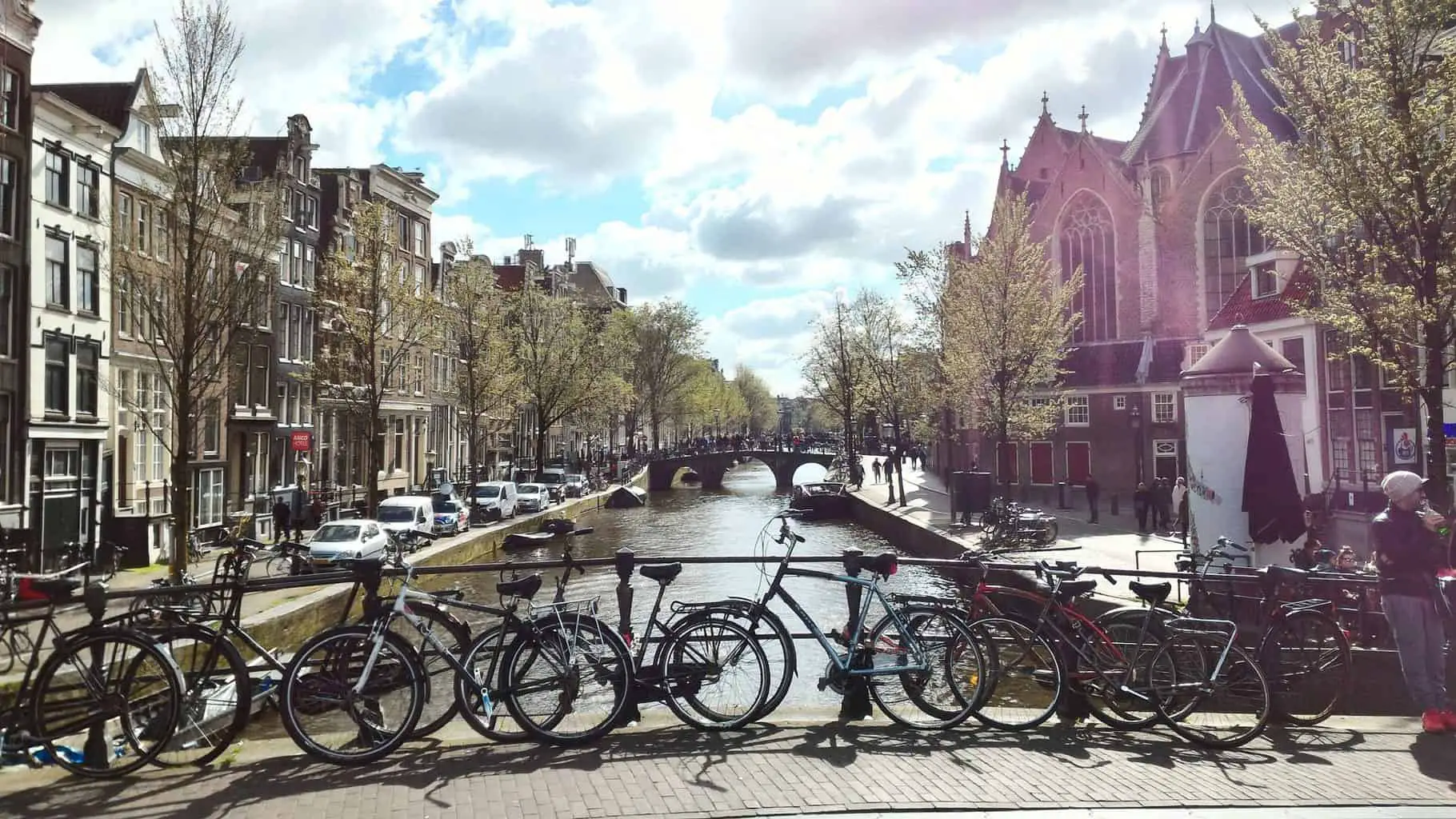



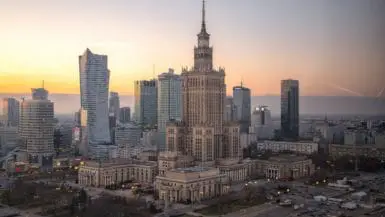
Leave a reply